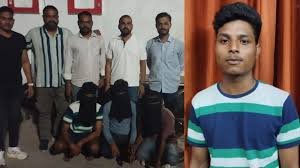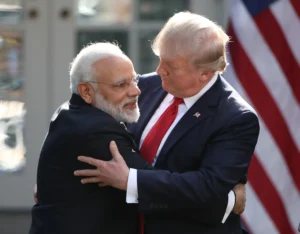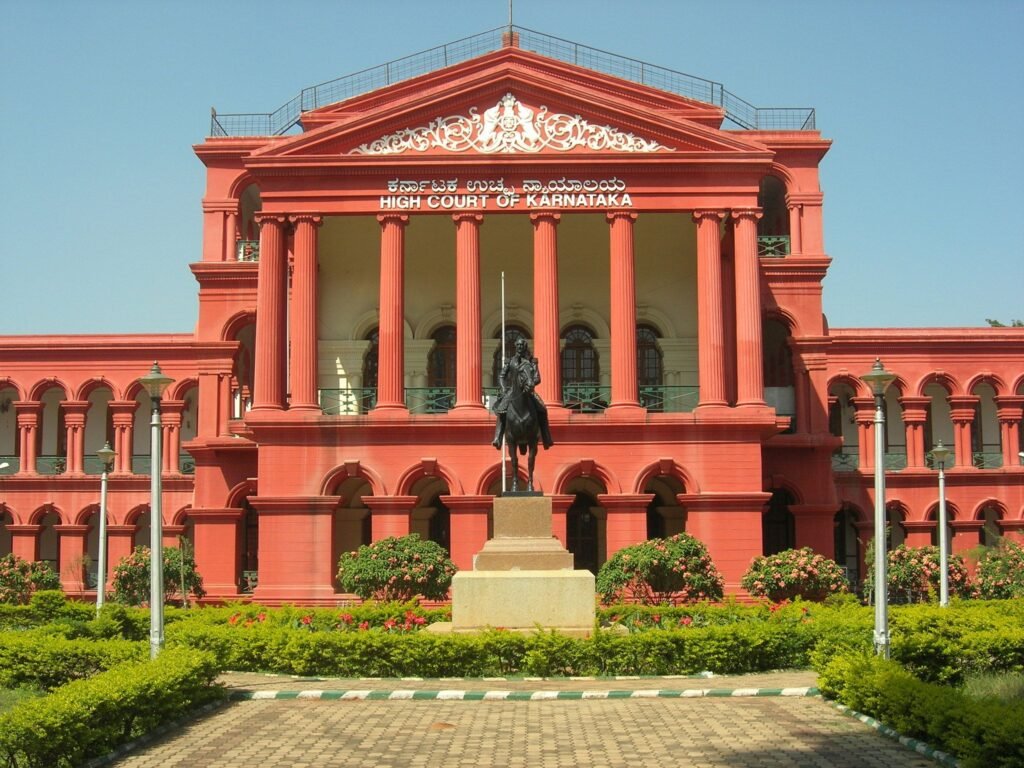
“Supreme Court Upholds National Unity: Judge’s ‘Pakistan’ Remarks Condemned”
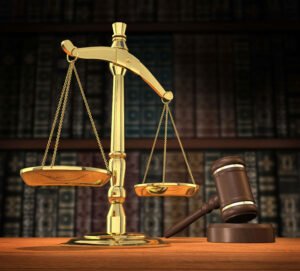
“Can’t Call Any Part Of India Pakistan”: Chief Justice On Judge’s Remarks
In a strongly worded statement, the Supreme Court of India has made it clear that referring to any part of the country as “Pakistan” is unacceptable and goes against the very foundation of India’s territorial integrity. This stern rebuke comes in response to controversial remarks made by a Karnataka High Court judge during recent judicial proceedings.
Judge’s Objectionable Comments
The controversy erupted when Karnataka High Court judge, Justice Vedavyasachar Srishananda, made objectionable remarks referring to a Muslim-dominated area in Bengaluru, Gori Palya, as ‘Pakistan.’ The judge also made inappropriate comments directed at a woman advocate during the hearings.The videos of Justice Srishananda’s remarks sparked widespread criticism on social media, drawing the ire of legal professionals and the public alike. Prominent lawyers, including Indira Jaising and Sanjoy Ghose, condemned the judge’s comments, emphasizing the importance of judicial conduct and the potential repercussions of such statements, especially when shared widely through livestreams.
Supreme Court’s Intervention
The Supreme Court, taking suo motu cognisance of the matter, had on September 20 ordered a report from the Karnataka High Court registry over the two videos showing the judge making the controversial remarks.A bench comprising the five seniormost judges of the top court, headed by Chief Justice of India (CJI) Dhananjaya Y Chandrachud, and including Justices Sanjiv Khanna, Bhushan R Gavai, Surya Kant and Hrishikesh Roy, strongly disapproved of the judge’s comments.“No one can call any part of India as Pakistan. It is fundamentally against the territorial integrity of the nation,” observed the bench, underscoring the need for decorum and restraint from judges in the digital age when court proceedings are frequently live-streamed and closely watched.
Judge’s Apology and Supreme Court’s Acceptance
A day after the Supreme Court took up the matter, Justice Srishananda, in an open court statement, said his observations were unintentional, but they were reported out of context on social media platforms. “I express my sincere regrets if they hurt any individual or any section of the society or community,” said the judge on September 21.Accepting the judge’s apology, CJI Chandrachud said, “Bearing in mind the apology which has been tendered by the judge in open court, we are of the view that the interest of justice and institutional respect for the High Court would be met by closing the suo motu proceedings.”However, the bench made certain strong observations in its order regarding the need for judges to avoid casual remarks which are misogynistic or appear to be directed against a community. The top court emphasized that modulation of behaviour by the judges is a must because it is as important for the stakeholders of the judiciary to appear fair and unbiased as rendering justice.

What actions did the Supreme Court take in response to the judge’s remarks
- Suo Motu Proceedings: On September 20, the Supreme Court initiated suo motu proceedings after videos surfaced showing Justice Srishananda making objectionable comments during court hearings. He referred to a Muslim-majority area in Bengaluru as “Pakistan” and made inappropriate remarks directed at a woman lawyer, which sparked widespread criticism on social media and among legal professionals.
- Closure of Proceedings: On September 25, the Supreme Court closed the proceedings after accepting an apology from Justice Srishananda. The Chief Justice of India, D.Y. Chandrachud, emphasized that no part of India should be referred to as Pakistan, stating that such remarks are fundamentally against the territorial integrity of the nation.
- Emphasis on Judicial Conduct: The Supreme Court issued a warning regarding the need for judges to exercise restraint and avoid casual comments that could be perceived as biased or prejudicial to any community or gender. The bench highlighted that judges must maintain impartiality and fairness in their conduct, especially in an era where court proceedings are often live-streamed.
- Consideration of Apology: The court noted Justice Srishananda’s expression of regret in open court on September 21, where he claimed his comments were unintentional and taken out of context. This contrition played a crucial role in the decision to close the matter without further action.
- Report from Karnataka High Court: Prior to closing the proceedings, the Supreme Court had requested a report from the Karnataka High Court regarding the incident, which was submitted and considered during their deliberations.
These actions reflect the Supreme Court’s commitment to uphold judicial decorum and reinforce the importance of sensitivity in judicial remarks.
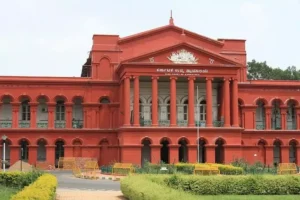
What were the specific remarks made by the Karnataka high court judge
- Reference to a Locality as “Pakistan”: In the context of a landlord-tenant dispute case, Justice Srishananda referred to a Muslim-majority area in Bengaluru as “Pakistan.” This remark was seen as derogatory and sparked outrage, prompting discussions about communal sensitivity in judicial statements.
- Misogynistic Comments Towards a Woman Lawyer: In another incident captured on video, the judge was observed reprimanding a woman lawyer. He made a comment suggesting that she seemed to know so much about the “opposition party” that she could even reveal the color of their undergarments. This remark was deemed misogynistic and inappropriate, further fueling criticism of the judge’s conduct during court proceedings.
These remarks were widely shared on social media, leading to the Supreme Court taking suo motu cognizance of the issue and subsequently seeking a report from the Karnataka High Court regarding the incidents. The Supreme Court emphasized that such comments undermine the integrity of the judiciary and must be avoided to maintain decorum in judicial proceedings.

How did the public and legal professionals react to the judge’s comments
- Widespread Criticism: The judge’s comments, particularly referring to a Muslim-majority area in Bengaluru as “Pakistan” and making inappropriate remarks towards a woman advocate, sparked outrage on social media. Prominent legal figures, including senior advocates Indira Jaising and Sanjoy Ghose, condemned the remarks, emphasizing the need for judicial conduct that respects all communities and genders. Jaising specifically called for gender sensitization training for the judge and urged the Chief Justice of India to take action against him.
- Response from Legal Associations: The Advocates Association of Bengaluru expressed their discontent, stating that the judge’s comments not only hurt sentiments but also reflected poorly on the judiciary as a whole. They demanded a temporary halt to live streaming of court proceedings until judges are better sensitized to the impact of their words. The association highlighted that such comments could lead to misinterpretations and sensationalism by media outlets and YouTube channels, further damaging the reputation of the legal profession.
- Public Outcry: Social media users voiced their concerns, with many criticizing the judge’s remarks as inappropriate and harmful. The clips of his comments went viral, leading to discussions about the need for greater accountability and sensitivity among judges in their public statements.
- Judicial Accountability: In light of the backlash, the Supreme Court took suo motu cognizance of the issue, emphasizing that no part of India should be referred to as Pakistan, as it undermines national integrity. The Supreme Court also noted that casual remarks by judges could reflect biases and called for decorum in judicial proceedings.
- Apology from the Judge: Following the uproar, Justice Srishananda publicly expressed regret for his comments, stating they were unintentional and taken out of context. He assured that he would refrain from making such remarks in the future.
Overall, the incident highlighted significant concerns regarding judicial conduct and its implications in a digital age where statements can quickly gain traction online.
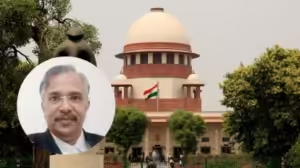
Conclusion
The remarks made by Karnataka High Court Judge Justice Vedavyasachar Srishananda have ignited a critical conversation about the responsibilities of judicial officers in India. The strong public and professional backlash underscores the importance of sensitivity, respect, and impartiality in the judiciary.The Supreme Court’s swift action in addressing the issue reflects its commitment to upholding the integrity of the legal system and ensuring that judges adhere to the highest standards of conduct. By emphasizing that no part of India should be referred to as “Pakistan,” the court reaffirmed its stance on national unity and respect for all communities.Justice Srishananda’s subsequent apology serves as a reminder that accountability is essential in maintaining public trust in the judiciary. Moving forward, it is crucial for judicial officers to recognize the weight of their words and actions, particularly in an era where court proceedings are increasingly accessible to the public.This incident highlights the need for ongoing education and training for judges on issues of gender sensitivity and communal harmony. As custodians of justice, judges play a pivotal role in shaping societal norms and perceptions; thus, their conduct must reflect fairness, respect, and dignity for all individuals.Ultimately, this episode serves as a vital lesson for the judiciary, legal professionals, and society at large about the importance of fostering an inclusive and respectful environment within India’s legal framework.
Discover more from
Subscribe to get the latest posts sent to your email.

